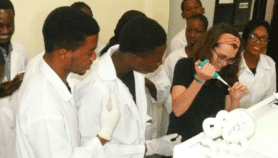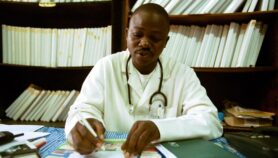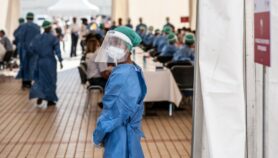By: Christina Scott
Send to a friend
The details you provide on this page will not be used to send unsolicited email, and will not be sold to a 3rd party. See privacy policy.
A complex and ambitious public-private partnership to transform South Africa into a developed-world economy within ten years is currently under consideration by government, business and other stakeholders.
Phil Mjwara, the director-general of South Africa’s Department of Science and Technology (DST), told SciDev.Net that the proposals lay out a change from a resource-based to a knowledge-based economy through a broad range of innovations including space technology, energy and biotechnology.
Representatives of universities, research councils, nongovernmental organisations and businesses met in Johannesburg this week (3 October) to examine and comment on the plan.
They met at the 32nd annual meeting of the National Science and Technology Forum (NSTF), an independent umbrella body made up of 115 organisations.
The innovation plan is "incredibly elaborate", Jansie Niehaus, director of the NSTF, told SciDev.Net. ”A very important component is human capital development, an acknowledgement that South Africa cannot get ahead economically if we don’t develop our knowledge workers and our knowledge skills.”
Niehaus said feedback on the plan was "very positive”.
Although the plan is meant to begin next year and run until 2018, Mjwara warned against expecting too much, too soon.
"The South African treasury is waiting for an analysis of the costs of funding the innovation plan, with the expectation that the private sector will fund about 40 per cent," Mjwara said.
Mjwara also played down a recent announcement by a senior DST representative at the recent Bio2Biz biotechnology entrepreneurship conference (September 17–19) that South Africa intends to double its science spending within a decade.
Ben Durham, acting general manager of biotechnology and health innovations at the DST, had said that South Africa aims to spend two per cent of its gross domestic product on research and development by 2018.
But this is somewhat beyond government control as the private sector currently accounts for most of the spending on science in South Africa, said Mjwara.
The South African taxpayer currently contributes about 40 per cent of spending on research and development in the country, with businesses investing about 60 per cent.













